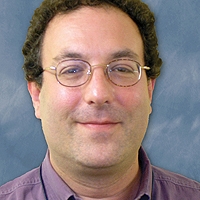Astor Elected to Elite National Academy of Education
February 26, 2016 / by Eric Lindberg- Research
How can schools provide an optimal setting for both learning and growth that helps children overcome adversity?
It’s a question Ron Avi Astor plans to bring to the forefront of his work as a newly elected member of the National Academy of Education, an elite organization focused on advancing high-quality education research and policy.
“How can we take kids and families living in adverse conditions and create environments that are so inspiring and supportive that their chances of succeeding are much higher?” said Astor, who is the Lenore Stein-Wood and William S. Wood Professor of School Behavioral Health at the USC School of Social Work and holds a joint appointment at the USC Rossier School of Education.
Astor views education as a great equalizer that has the potential to build communities, erase socioeconomic disadvantages and help children grow into productive members of society. To achieve that lofty goal, he said the education system needs to reflect on how to rebuild itself as a holistic supportive environment rather than just a conduit for academic subject matter.
“School is not only a place where you learn material to be functional in society, but it’s a place where you get support and learn how to interact with teachers and peers,” Astor said. “It could be the place that helps someone achieve a different vision of how to be a productive, caring person in the world.”
Although he lauded efforts to develop programs that address specific issues such as hate crimes, bullying and poor attendance, he also wants schools to form an identity as a setting that tackles all of those problems at once through an overarching focus on socioemotional health and well-being.
He hopes his selection as a member of the academy, which has approximately 200 members worldwide, will give a stronger voice to that approach.
“It’s not just an honorific group,” he said. “They are very involved in policy and advocacy. It raises the credibility of the work we’ve done on bullying and school violence, military kids, and this idea of the school as an optimal environment.”
As one of few individuals in the academy with a joint appointment in social work and education, Astor said he hopes to bridge the gap between the two fields, which he views as having grown apart in recent decades despite sharing common interests such as addressing the achievement gap, effects of poverty on education, and disparities in funding and resources for different ethnic groups.
Although social work has its roots in education, dating back to the efforts of Jane Addams and her famous Hull House settlement project to provide social and educational resources for working class residents of Chicago at the turn of the 20th century, Astor said the profession needs to strengthen its ties with the education system.
“There is no reason for a social worker not to become a principal in a school or a superintendent,” he said. “From the educational side, there needs to be a similar emphasis on addressing societal issues like poverty, immigration and racism. These are not just side issues; they are central to what our national education system is struggling with and trying to overcome.
“There are many opportunities to influence school reform when we examine schools and communities using social ecological theory and research methods.”
Astor plans to share his vision for the U.S. education system during annual meetings of the national academy, through its policy statements, and during briefings with government officials and other groups.
The academy is also known for its mentoring work, and Astor, who benefited from a postdoctoral fellowship from the academy while teaching at the University of Michigan, said he is looking forward to interacting with junior faculty members and other promising researchers.
“I’m excited and invigorated to get engaged,” he said. “I’m welcoming it with open arms. It’s a blessing because of the potential to reach more people with open ears and open hearts and open minds.”
To reference the work of our faculty online, we ask that you directly quote their work where possible and attribute it to "FACULTY NAME, a professor in the USC Suzanne Dworak-Peck School of Social Work” (LINK: https://dworakpeck.usc.edu)
